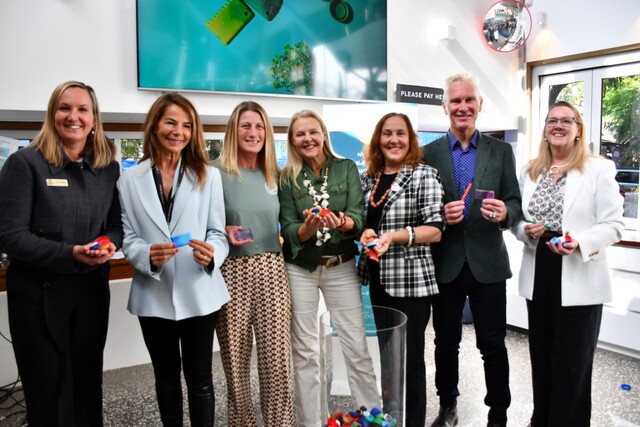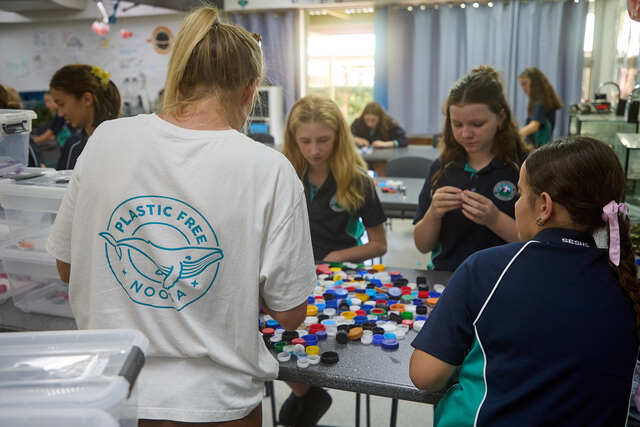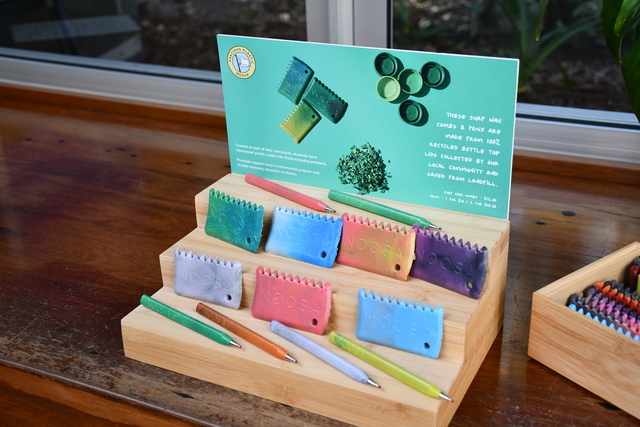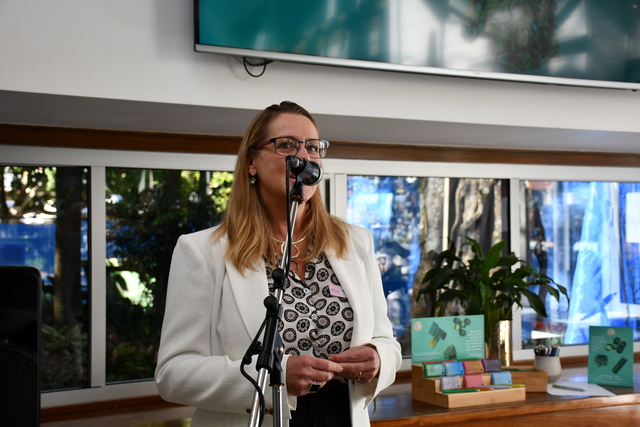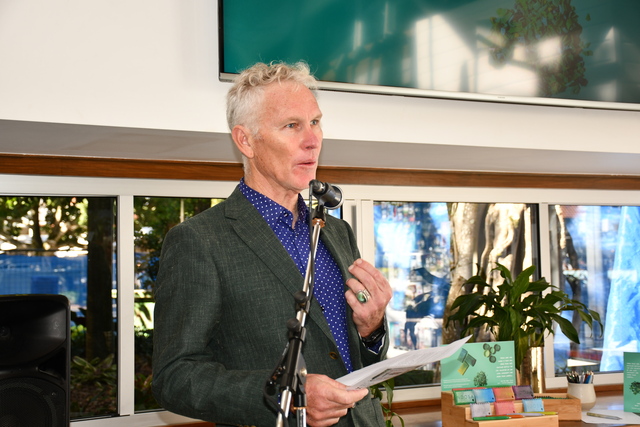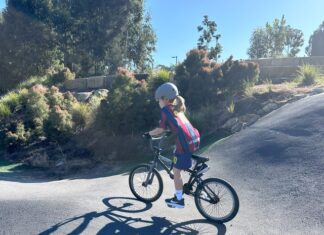Plastic bottle caps are getting a second life as Noosa-branded surfboard wax combs and pens, now on sale at the Noosa Visitor Information Centre.
Tourism Noosa has officially launched the new sustainability initiative, Precious Plastic Noosa, an innovative community recycling initiative that transforms plastic waste into practical, branded products.
Tourism Noosa chief executive officer Sharon Raguse said the initiative reflects Noosa’s standing as a UNESCO Biosphere Reserve and its ongoing sustainability journey.
“This project is about turning waste into something meaningful,” Ms Raguse said.
“Precious Plastic Noosa isn’t just about recycling – it’s about engaging our community, empowering our youth, and demonstrating how small actions can lead to big change.
“These locally made products are a proud representation of what Noosa stands for: innovation, collaboration, and environmental care.”
The program has been made possible with the support of Tourism Noosa, Noosa Council, and Member for Noosa Sandy Bolton MP, and is delivered through the environmental Plastic Free Noosa program.
“This is a fun initiative that reduces waste as well inspires and educates our community,” Sandy Bolton MP said.
“To take an everyday item like a bottle cap and follow its journey from rubbish to repurposed product is powerful and empowering. It’s a practical, positive step towards a more sustainable future.”
Using the global Precious Plastic model, the program encourages a circular economy approach by partnering with local schools and the broader community.
Students at Sunshine Beach State High School are among the first to participate, learning about sustainability and product design as part of an integrated school curriculum.
Jen Sharpe, Program Coordinator for Plastic Free Noosa, said the initiative is designed to embed sustainability in both education and everyday practice.
“We’re not just recycling plastic, we’re educating on circular economies, and reshaping the way our community thinks about waste,” Mrs Sharpe said.
“By engaging students, residents and visitors, we’re fostering a culture of micro-recycling and environmental leadership that starts right here in Noosa.”
The initiative also supports UN Sustainable Development Goal 12, promoting responsible consumption and production, and includes a detailed implementation plan that outlines future expansion to additional schools, increased community engagement, and new product development.
For more information visit www.plasticfreenoosa.org/precious-plastic-noosa

